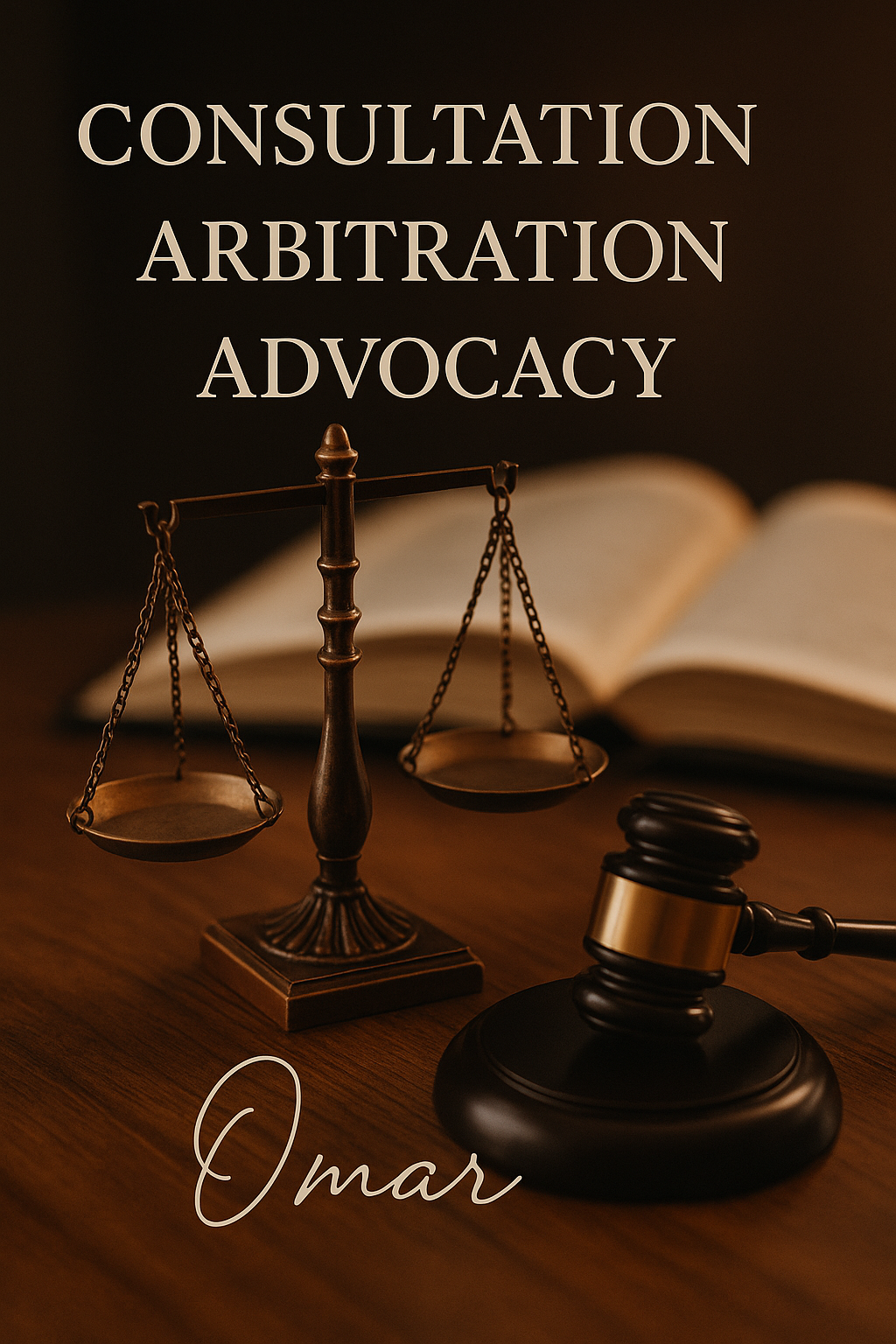Commercial Agencies in Saudi Arabia
Omar baghdadi • October 23, 2024
Commercial agencies play a vital role in enhancing trade and investment within Saudi Arabia. They enable international companies to access the Saudi market through authorized local agents, facilitating the marketing and sale of international products and services within the Kingdom. In this article, we will discuss the concept of commercial agencies, the legal regulations governing them, and the procedures for registering a commercial agency in Saudi Arabia.
1. Definition of Commercial Agencies
A commercial agency is an agreement in which one party (the agent) is granted the right to represent or distribute the products or services of another party (the principal) within a specific market. In Saudi Arabia, commercial agencies are regulated under the Commercial Agencies Law issued by Royal Decree No. (M/11) on 20/2/1382H, along with its subsequent amendments. This law requires agents to register with the Ministry of Commerce to ensure transparency and protect the rights of consumers and principals.
2. Types of Commercial Agencies
Commercial agencies in Saudi Arabia vary based on the nature of the relationship between the agent and the principal, including:
Commission Agency: In this type, the agent's role is to promote products or services on behalf of the principal and receive a commission for each sale made. The agent does not bear direct financial responsibility in this arrangement.
Distributive Agency: Here, the agent purchases products from the principal and then sells them directly in the local market. The agent assumes financial responsibility and has more freedom in pricing and distribution.
Exclusive Agency: The principal grants exclusive rights to distribute its products or services within a specific geographical area to a single agent. This type of agency helps strengthen the brand and facilitates focused product distribution.
3. Legal Framework for Commercial Agencies in Saudi Arabia
The Saudi Commercial Agencies Law regulates the relationship between agents and principals to ensure fairness and transparency, including the following provisions:
Mandatory Registration: The law requires commercial agents to register their agencies with the Ministry of Commerce to validate contracts and provide legal protection to both parties.
Defining Rights and Obligations: The law mandates that agency agreements clearly outline the rights and obligations of the agent and the principal, including the scope of work, contract duration, and compensation for services.
Termination Procedures: The law outlines how a commercial agency can be terminated and requires that the other party be notified within a reasonable period before ending the contract to protect the rights of all parties involved.
4. Procedures for Registering Commercial Agencies in Saudi Arabia
To register a commercial agency in Saudi Arabia, the parties involved must follow these procedures:
Drafting the Agency Agreement: Both parties (the agent and the principal) must agree on a written contract that includes all details of the agency, such as the nature of the products or services, the scope of distribution, the contract duration, and the rights and obligations of each party.
Submitting the Registration Application: The agent must submit a registration application for the agency to the Ministry of Commerce through the designated online platform. The registration requires the following documents:
A copy of the agency agreement signed by both parties.
Documents proving the agent’s identity (such as the commercial registration).
Any other documents that the Ministry may require.
Paying the Fees: The agent is required to pay the prescribed fees for registering the agency. The fees vary depending on the type of agency and the scale of business.
Review and Approval: The Ministry of Commerce reviews the application and the submitted documents. If all requirements are met, the Ministry issues a certificate of commercial agency registration, allowing the agent to legally operate as a representative of the principal in Saudi Arabia.
5. Importance of Registering Commercial Agencies
Legal Protection for Both Parties: Registering the agency ensures legal protection for both the agent and the principal, serving as evidence of a valid commercial relationship and facilitating the resolution of disputes.
Ensuring Consumer Rights: Registering agencies helps provide higher standards for the products and services offered in the market, thereby protecting consumer rights.
Enhancing Transparency: Registration contributes to enhancing transparency in the commercial market, making it easier to track products and verify the identity of authorized agents.
6. Termination of Commercial Agencies
A commercial agency agreement can be terminated according to the provisions stated in the contract or by a court decision in certain cases, such as breach of contract terms. The contract termination must be notified within a reasonable period to allow the other party to adapt to potential changes in the commercial relationship.
7. Common Challenges and Issues in Commercial Agencies
Despite the importance of commercial agencies, there are some challenges that parties may face:
Contractual Disputes: Disputes may arise between the agent and the principal regarding contract obligations or distribution rights, sometimes requiring court intervention to resolve.
Market Fluctuations: Changes in the market can affect the success of a commercial agency, such as shifts in demand or changes in trade and customs policies.
Exclusivity and Breach of Agreements: Disagreements may occur regarding the scope of exclusivity or the obligation to supply products or services according to the agreement.
8. Conclusion
Commercial agencies play a crucial role in boosting economic activity in Saudi Arabia, as they help bring international products and services to the local market and enhance competitiveness and quality. The Commercial Agencies Law in Saudi Arabia provides an essential legal framework to regulate this commercial relationship, offering protection to both parties and to consumers.
For any commercial agency relationship to succeed, parties must comply with local regulations and ensure the proper registration of the agency, providing all necessary documents. It is also recommended to seek legal assistance for proper advice and to avoid potential future disputes.

مقدمة: يعتقد كثير من الناس أن الصمت لا يترتب عليه أثر قانوني، وأن “عدم الرد” يعني ببساطة عدم الالتزام،غير أن الواقع القانوني أكثر تعقيدًا؛ إذ قد يتحول الصمت في بعض الحالات إلى موقف قانوني معتبر، بل قد يُفسَّر أحيانًا على أنه قبول أو إقرار أو تنازل، بحسب ظروف العلاقة بين الأطراف وطبيعة التعامل. ومن هنا تظهر أهمية السؤال: متى يكون الصمت مجرد سكوت؟ ومتى يصبح موقفًا قانونيًا ملزمًا؟ أولًا: القاعدة العامة… الصمت لا يُعد قبولًا. الأصل في القواعد العامة للعقود أن القبول يجب أن يكون صريحًا أو دالًا بوضوح على الرضا، ولذلك فإن القاعدة المستقرة فقهيًا هي: الصمت لا يُعد قبولًا. فلا يجوز إلزام شخص بعقد أو التزام لمجرد أنه سكت، لأن الالتزام يفترض وجود إرادة واضحة،وهذا المبدأ يحقق العدالة ويمنع التحايل، ويمنع الأطراف من فرض الالتزامات على غيرهم دون رضا صريح. ثانيًا: متى يتحول الصمت إلى قبول؟ رغم أن الأصل أن الصمت لا يُعد قبولًا، إلا أن القانون والفقه يعترفان باستثناءات مهمة تجعل الصمت ذا أثر قانوني في ظروف محددة، أهمها: 1) إذا وُجد تعامل سابق ثابت بين الطرفين: عندما تكون هناك علاقة مستمرة أو تعامل متكرر، يصبح الصمت أحيانًا قرينة على القبول، لأن الطرف الساكت اعتاد قبول المعاملة بهذه الطريقة دون اعتراض. فمثلًا: إذا اعتاد تاجر استلام البضاعة بناءً على عرض يُرسل إليه دوريًا دون توقيع جديد، فإن سكوته في بعض الحالات قد يُفسر كاستمرار في ذات النهج التجاري. 2) إذا كان الصمت في موضع يجب فيه الرد: في بعض الحالات يكون السكوت غير طبيعي أو غير متوقع، بحيث يُفهم منه قبول ضمني، خصوصًا إذا كان الشخص يعلم أن عدم الرد سيُفسر كقبول. ومن الأمثلة الشائعة: إرسال إشعار بتعديل شروط عقد قائم، مع وجود بند ينص على أن عدم الاعتراض خلال مدة معينة يعد قبولًا. تلقي إشعار رسمي بمطالبة أو إخطار جوهري وعدم الرد عليه رغم القدرة على الرد. هنا لا يصبح الصمت قبولًا تلقائيًا، لكنه قد يُعد قرينة قوية بحسب السياق. 3) إذا كان هناك التزام قانوني أو تعاقدي بالاعتراض: أحيانًا يكون هناك شرط في العقد يلزم الطرف بإبداء اعتراضه خلال مدة محددة، وإلا اعتُبر موافقًا. وهذه المسألة تظهر بوضوح في: العقود التجارية. عقود الموردين. العقود المستمرة طويلة المدة. عقود الخدمات والاشتراكات. وفي هذه الحالات، لا يكون الصمت مجرد سكوت، بل يصبح إهمالًا قانونيًا يترتب عليه أثر. ثالثًا: الصمت كتنازل عن الحق. من أخطر آثار الصمت أنه قد يؤدي إلى تفسيره كتخلٍّ عن الحق أو تنازل عنه، خاصة إذا استمر الشخص في التعامل دون تحفظ. فمثلًا: شخص يعلم بوجود إخلال في عقد، لكنه يستمر في التنفيذ دون اعتراض. عامل يتعرض لمخالفة واضحة لكنه لا يحتج أو يطالب أو يعترض فترة طويلة. في مثل هذه الحالات، قد يدفع الطرف الآخر بأن الصمت يعني: قبول الوضع. اسقاط حق الاعتراض. الإقرار الضمني. وهذا لا يعني سقوط الحق دائمًا، لكنه قد يضعف المركز القانوني بشكل كبير. رابعًا: الصمت كإقرار أو دليل ضد صاحبه. في النزاعات القضائية، الصمت قد يتحول إلى دليل غير مباشر ضد صاحبه إذا كان السكوت غير منطقي في سياق الواقعة. مثال ذلك: إرسال إنذار أو مطالبة مالية واضحة وعدم الرد عليها. استلام بضاعة معيبة وعدم تقديم اعتراض أو محضر تحفظ. القاضي قد يعتبر هذا السكوت مؤشّرًا على قبول أو عدم جدية الادعاء لاحقًا، خصوصًا إذا لم يكن هناك سبب مقنع للصمت. خامسًا: الفرق بين الصمت والسكوت المصحوب بسلوك. من الناحية القانونية، الصمت وحده قد لا يكفي دائمًا، لكن الخطورة تكمن في الصمت المصحوب بتصرف، فإذا سكت الشخص ثم تصرف بما يدل على القبول (مثل الاستمرار في التنفيذ أو الدفع أو الاستفادة من الخدمة)، فإن هذا السلوك يصبح أقوى من أي كلام لاحق، وهنا يدخل الصمت في نطاق: القبول الضمني المستفاد من التصرفات. سادسًا: كيف تحمي نفسك قانونيًا من آثار الصمت؟ من الناحية العملية، أفضل وسيلة لحماية الحقوق هي اعتماد قاعدة بسيطة: إذا لم توافق… لا تصمت. ومن الوسائل الوقائية المهمة: الاعتراض الكتابي فورًا عند وجود مخالفة. إرسال رسالة تحفظ حتى لو لم تُحسم التفاصيل بعد. توثيق الاعتراض عبر البريد الإلكتروني أو رسالة رسمية. عدم الاستمرار في التنفيذ دون تحفظ مكتوب. الانتباه للمواعيد المحددة للاعتراض في العقود. هذه الإجراءات البسيطة تصنع فرقًا كبيرًا عند النزاع. الصمت ليس دائمًا حيادًا، وفي بعض الحالات قد يكون أخطر من الكلام، فالقاعدة العامة تقول إن الصمت لا يُعد قبولًا، لكن الاستثناءات العملية تجعل السكوت أحيانًا موقفًا قانونيًا ينتج آثارًا ملزمة، ولهذا فإن الوعي القانوني الحقيقي لا يتمثل في معرفة الحق فقط، بل في معرفة أن الحقوق تُصان بالفعل والاعتراض في الوقت المناسب، لأن الصمت قد يتحول إلى قبول أو تنازل أو إقرار دون أن يشعر صاحبه. تنويه قانوني: يُقدَّم هذا المقال على سبيل الرأي القانوني العام والتوعية فقط، ولا يُعد استشارة قانونية مخصصة، ولا ينشئ أي علاقة مهنية أو تعاقدية بين الكاتب والقارئ، ويُنصح بالرجوع إلى مختص قانوني قبل اتخاذ أي قرار بناءً على ما ورد فيه.

مقدمة: في عالم العقود والمعاملات القانونية، يختلط على الكثيرين فهم الفرق بين **البطلان** و**الإبطال**، رغم أن هذا الفرق قد يغيّر مصير العقد بالكامل، ويؤثر على حقوق الأطراف ومسؤولياتهم، إدراك هذا التمييز ليس مجرد معرفة قانونية نظرية، بل هو ضرورة عملية لكل من يتعامل مع العقود، سواء كان صاحب عمل أو مستثمرًا أو حتى فردًا عاديًا. أولًا: معنى البطلان. البطلان يعني أن العقد **غير قائم قانونًا منذ اللحظة الأولى**، أي أن العقد وُلد ميتًا، ولا يمكن أن ينتج عنه أي أثر قانوني، ويحدث البطلان عندما يفتقد العقد أحد أركانه الأساسية، مثل: - غياب الرضا الحقيقي . - انعدام المحل أو عدم مشروعيته . - مخالفة النظام العام أو الآداب . - انعدام أهلية أحد الأطراف بشكل كامل . أثر البطلان: - العقد يُعتبر كأنه لم يُبرم أصلًا. - لا يمكن تصحيحه أو إجازته بأي شكل. - يجوز لأي طرف أو حتى المحكمة إثارة البطلان في أي وقت. - يجب إعادة الحال إلى ما كان عليه قبل التعاقد. ثانيًا: معنى الإبطال. الإبطال يعني أن العقد **صحيح من حيث الأصل** لكنه معيب بعيب يؤثر في إرادة أحد الأطراف أو أهليته، مما يجعل العقد قابلًا للإلغاء إذا طلب الطرف المتضرر ذلك، وتظهر حالات الإبطال في حالات مثل: - نقص أهلية أحد الأطراف. - وقوع المتعاقد تحت تدليس أو إكراه . - وجود غبن فاحش أو استغلال . - وقوع خطأ جوهري يؤثر في الرضا . أثر الإبطال: - العقد يبقى صحيحًا ونافذًا إلى أن يُقضى بإبطاله. - لا يملك طلب الإبطال إلا الطرف المتضرر. - يمكن للطرف المتضرر **إجازة العقد** فيصبح صحيحًا بشكل نهائي. - إذا تم إبطاله، تُعاد الأمور إلى ما كانت عليه قبل التعاقد. ثالثًا: الفروق الجوهرية بين البطلان والإبطال. رغم أن النتيجة النهائية في الحالتين قد تبدو متشابهة — وهي زوال العقد — إلا أن الطريق إلى هذه النتيجة مختلف تمامًا. 1. طبيعة العقد: - في البطلان: العقد غير موجود قانونًا منذ البداية. - في الإبطال: العقد موجود لكنه قابل للإلغاء. 2. من يملك حق الطعن: - في البطلان: أي طرف أو المحكمة من تلقاء نفسها. - في الإبطال: الطرف المتضرر فقط. 3. إمكانية التصحيح: - في البطلان: لا يمكن تصحيح العقد. - في الإبطال: يمكن إجازته فيصبح صحيحًا. 4. الأثر القانوني: - في البطلان: لا ينتج العقد أي أثر. - في الإبطال: ينتج أثرًا مؤقتًا إلى حين الحكم. رابعًا: لماذا فهم هذا الفرق مهم؟ لأن الخطأ في التكييف القانوني قد يؤدي إلى: - ضياع حقوق مالية. - استمرار عقد غير مرغوب فيه. - الدخول في نزاعات طويلة . - فقدان فرصة تصحيح عقد قابل للإصلاح . كما أن الشركات التي تتعامل مع عقود متعددة تحتاج إلى معرفة ما إذا كان العقد **منعدمًا** أم **قابلًا للإبطال**، لأن ذلك يحدد طريقة التعامل معه، ومسؤولية كل طرف، وإمكانية الاستمرار في العلاقة التعاقدية. البطلان يعني أن العقد لم يولد أصلًا، بينما الإبطال يعني أن العقد وُلد لكنه معيب ويمكن علاجه. التمييز بينهما ليس مجرد مصطلحات قانونية، بل هو أساس لفهم مصير العقد وحقوق الأطراف، وكلما كان الوعي بهذه الفروق أكبر، كانت القرارات التعاقدية أكثر أمانًا واحترافية.

مقدمة: تُعدّ عقود الموردين والعملاء من أهم الأدوات القانونية التي تعتمد عليها الشركات لتنظيم تعاملاتها التجارية وحماية مصالحها، فالعقد ليس مجرد وثيقة تُوقّع، بل هو إطار شامل يحدد الحقوق والالتزامات ويمنع النزاعات قبل وقوعها، ومع توسع الأعمال وتعدد الشركاء، أصبحت الحاجة إلى عقود دقيقة وواضحة ضرورة لا يمكن تجاهلها. فيما يلي أبرز البنود الجوهرية التي يجب عدم إغفالها عند صياغة أو مراجعة أي عقد مع مورد أو عميل. 1. نطاق العمل. يُعد هذا البند حجر الأساس في أي عقد، ويجب أن يتضمن: - وصفًا دقيقًا للمنتجات أو الخدمات. - المواصفات الفنية . - الكميات المطلوبة . - معايير الجودة . - آلية فحص المنتجات وقبولها أو رفضها . وضوح هذا البند يقلل من الخلافات ويضمن فهمًا مشتركًا بين الطرفين. 2. الأسعار وشروط السداد, من أكثر البنود حساسية، ويجب أن يشمل: - السعر المتفق عليه أو طريقة احتسابه. - العملة المعتمدة . - مواعيد السداد . - الدفعات المسبقة أو المرحلية. - الغرامات عند التأخير . كما يُفضّل تحديد كيفية التعامل مع تغيّر الأسعار أو التكاليف الطارئة. 3. مواعيد التسليم. التأخير في التسليم قد يسبب خسائر تشغيلية ومالية، لذا يجب تحديد: - تاريخ أو جدول التسليم . - مكان وطريقة التسليم . - الغرامات أو التعويضات عند التأخير . - الحالات التي يُعفى فيها المورد من المسؤولية مثل الظروف الطارئة. 4. الضمان والمسؤولية. هذا البند يحمي العميل من العيوب أو الأخطاء، ويجب أن يوضح: - مدة الضمان. - ما يشمله الضمان وما يُستثنى منه. - التزامات المورد في حال وجود عيب . - حدود المسؤولية القانونية . 5. السرية وحماية المعلومات. في ظل أهمية البيانات، يجب أن يتضمن العقد: - تعريف المعلومات السرية. - التزام الطرفين بعدم الإفصاح . - مدة الالتزام بالسرية حتى بعد انتهاء العقد . - العقوبات عند الإخلال. 6. الملكية الفكرية. خصوصًا في عقود التطوير والبرمجيات والتصميم، ويجب تحديد: - من يملك المنتج النهائي. - حقوق الاستخدام . - حقوق التعديل أو إعادة الإنتاج . - حماية العلامات التجارية . 7. إنهاء العقد. لا بد من وجود بند واضح يحدد: - الحالات التي يحق فيها لأي طرف إنهاء العقد . - مدة الإشعار المسبق . - الالتزامات بعد الإنهاء . - التعويضات المحتملة . 8. حل النزاعات. لتجنب التعقيدات القانونية، يجب تحديد: - آلية حل النزاع (تفاوض، وساطة، تحكيم، قضاء) . - الجهة القضائية المختصة . - اللغة المعتمدة للعقد . 9. القوة القاهرة. يحمي الطرفين عند وقوع أحداث خارجة عن الإرادة مثل: - الكوارث الطبيعية . - الحروب . - الأوبئة . - القرارات الحكومية. ويجب تحديد أثر هذه الأحداث على الالتزامات التعاقدية. 10. الامتثال للأنظمة. أصبحت الشركات مطالبة بالالتزام بمعايير: - مكافحة الفساد. - حماية البيئة . - حقوق العمال . - الجودة والسلامة. وجود هذا البند يعزز الثقة ويقلل المخاطر القانونية. العقد التجاري ليس مجرد إجراء شكلي، بل هو وثيقة استراتيجية تحمي مصالح الشركة وتضمن استمرارية العمل دون مفاجآت،وإهمال أي بند من البنود الجوهرية قد يؤدي إلى خسائر مالية أو قانونية أو تشغيلية لذلك من الضروري صياغة العقود باحترافية ومراجعتها بعناية، والاستعانة بالخبراء عند الحاجة.

مقدمه: في عالم الأعمال والتعاملات المالية، تُعدّ **الشيكات** و**الكمبيالات** من أهم أدوات الائتمان التي يعتمد عليها الأفراد والشركات لضمان الحقوق وتسهيل الدفع، ورغم أنها تبدو أدوات بسيطة، إلا أن التعامل معها دون وعي قد يحوّلها من وسيلة حماية إلى مصدر خطر حقيقي. في هذا المقال سنفكّك الفكرة بوضوح: متى تحميك هذه الأوراق التجارية؟ ومتى قد تدمّرك؟ أولًا: ما الفرق بين الشيك والكمبيالة؟ 1- الشيك: - أداة وفاء فورية. - يُصرف من حساب بنكي مباشرة. - يُستخدم عادة في المعاملات اليومية أو لسداد مستحقات قائمة. 2- الكمبيالة: - أداة ائتمان مؤجلة. - تتضمن تعهّدًا بالدفع في تاريخ مستقبلي. - تُستخدم غالبًا بين التجار أو في المعاملات الكبيرة. ثانياً: متى تحميك الشيكات والكمبيالات؟ 1. عندما تكون وسيلة إثبات قوية لحقوقك، هذه الأوراق تُعدّ **سندات تنفيذية** في كثير من الأنظمة القانونية، ما يعني أنك تستطيع التوجه مباشرة للتنفيذ دون الحاجة لرفع دعوى طويلة. 2. عندما تُستخدم في معاملات واضحة ومحددة، كلما كانت العلاقة المالية موثقة وواضحة، أصبحت هذه الأدوات ضمانًا فعّالًا لاسترداد حقك. 3. عندما تُحرّر بشكل صحيح، التحرير السليم يحميك من النزاعات، مثل: - كتابة المبلغ بالأرقام والحروف - تحديد تاريخ الاستحقاق - توقيع الأطراف بوضوح - عدم ترك فراغات يمكن التلاعب بها 4. عندما تُستخدم كوسيلة تنظيم للدفعات،و الكمبيالات خصوصًا تساعد على تنظيم السداد على فترات، مما يحمي الطرفين من ضغط السيولة. ثالثاً: متى تدمّرك؟ 1. عندما توقّع على شيك بدون رصيد،و هذه من أخطر الأخطاء. الشيك بدون رصيد قد يعرّضك: - للمساءلة القانونية - للغرامات - للمنع من التعامل بالشيكات - وربما للسجن في بعض الدول 2. عندما توقّع كمبيالة مجاملة، و كثيرون يوقّعون كمبيالات لصديق أو قريب "على سبيل الثقة"، لكن الكمبيالة **سند ملزم**، وقد تجد نفسك مطالبًا بدفع مبلغ ضخم لا علاقة لك به. 3. عندما تترك فراغات أو بيانات ناقصة، لأن الفراغات قد تُستغل لإضافة مبالغ أو تواريخ لم توافق عليها أصلًا. 4. عندما تستخدمها دون فهم قانوني، لأن الجهل بالقوانين المتعلقة بالشيكات والكمبيالات قد يوقعك في التزامات لم تتوقعها، خصوصًا في حالات: - التظهير - الضمان - الرجوع على الساحب أو المظهر - سقوط الحق بالتقادم 5. عندما تعتمد عليها بدلًا من العقود، لأن الشيك أو الكمبيالة لا يغني عن عقد واضح يحدد: - طبيعة المعاملة - الالتزامات - شروط التسليم - الضمانات - الجزاءات رابعاً: كيف تتعامل معها بذكاء؟ 1. لا توقّع إلا على ما تفهمه، اقرأ، اسأل، وتأكد قبل التوقيع. 2. لا تسلّم شيكًا أو كمبيالة فارغة، حتى لو كان الطرف الآخر محل ثقة. 3. وثّق كل معاملة بعقد، واجعل الشيك أو الكمبيالة مجرد وسيلة ضمان. 4. احتفظ بنسخ وصور لكل ورقة توقعها، لإثبات نيتك وشروطك. 5. استشر مختصًا عند الشك، المحامي أو المستشار المالي قد يوفر عليك الكثير من المتاعب. الشيكات والكمبيالات ليست مجرد أوراق؛ إنها **أسلحة مالية** يمكن أن تحميك أو تدمّرك، و الفرق بين الحماية والخطر يكمن في **الوعي** و**التحرير الصحيح** و**عدم التهاون** في التوقيع، إذا أحسنت استخدامها، أصبحت ضمانًا قويًا لحقوقك، وإذا أسأت التعامل معها، قد تتحول إلى عبء ثقيل يلاحقك قانونيًا وماليًا.

مقدمة: في عالم الشركات، تعتبر "المسؤولية المحدودة" هي الركيزة الأساسية التي تفصل بين التزامات الشركة المالية والذمة المالية الخاصة بمديريها، ومع ذلك، فإن هذا الفصل ليس مطلقاً؛ إذ قرر المشرع حالات محددة تنهار فيها هذه الحماية، ليجد المدير نفسه مسؤولاً أمام الدائنين أو الشركاء بصفته الشخصية وبكامل ثروته. رغم الحماية القانونية لمدير الشركة الا أن النظام حدد الحلات التي يجوز بها مساءلة المدير وهي: 1. الإهمال الجسيم والأخطاء الإدارية: لا يُسأل المدير عن الخسائر الناتجة عن تقلبات السوق أو المخاطر التجارية العادية، لكنه يصبح مسؤولاً من ماله الخاص إذا ثبت ارتكابه لخطأ إداري لا يرتكبه "المدير المتبصر"، يشمل ذلك اتخاذ قرارات متهورة دون دراسة جدوى، أو التفريط في أصول الشركة، أو عدم متابعة تحصيل ديون الشركة حتى سقطت بالتقادم. في هذه الحالة، يتحول الخطأ من "خطأ مرفقي" تتحمله الشركة إلى "خطأ شخصي" يتحمله المدير. 2. تجاوز الصلاحيات ومخالفة النظام الأساسي: يعمل المدير كوكيل عن الشركة ضمن حدود رسمها عقد التأسيس ونظامها الأساسي، فإذا قام المدير بإبرام عقود تخرج عن أغراض الشركة، أو اقترض مبالغ تتجاوز السقف المسموح له به، أو منح ضمانات لأطراف ثالثة دون تفويض، فإنه يعتبر قد عمل لحسابه الخاص وليس لحساب الشركة، مما يجعله مسؤولاً شخصياً عن الوفاء بتلك الالتزامات. 3. خلط الذمة المالية واستغلال الأصول: تُثار المسؤولية الشخصية مباشرة إذا تعامل المدير مع أموال الشركة كأنها أمواله الخاصة، تظهر هذه الحالة بوضوح عند سداد ديون شخصية من حساب الشركة، أو استخدام أصول الشركة (مثل العقارات أو السيارات) لأغراض عائلية دون عقد قانوني، أو خلط الحسابات البنكية بحيث يصعب التمييز بين ما يخص المدير وما يخص الكيان الاعتباري هنا، يسقط مبدأ استقلال الشخصية الاعتبارية وتصبح ذمة المدير ضامنة لديون الشركة. 4. المسؤولية أثناء التعثر المالي والإفلاس: تعتبر هذه المرحلة هي الأكثر حرجاً؛ فحين تقترب الشركة من حالة الافلاس، ينتقل واجب المدير من حماية مصلحة الشركاء إلى حماية مصلحة "الدائنين". يُسأل المدير في ماله الخاص إذا استمر في استنزاف أصول الشركة رغم علمه باستحالة سداد ديونها، أو إذا قام بتهريب أموال الشركة لجهات أخرى للإضرار بالدائنين، أو إذا لم يتقدم بطلب الافتتاح لإجراءات الإفلاس في المواعيد التي حددها القانون عند بلوغ الخسائر حداً معيناً. 5. مخالفة القوانين والأنظمة الآمرة: توجد قوانين لا تعفي المدير من المسؤولية حتى لو كان يعمل باسم الشركة، مثل التلاعب في القوائم المالية لإظهار أرباح وهمية، أو التزوير، أو مخالفة الأنظمة الضريبية والعمالية بشكل متعمد في هذه الحالات، تترتب على المدير مسؤولية "تضامنية"، حيث يحق للمتضرر الرجوع على الشركة وعلى المدير في آن واحد لاستيفاء حقوقه. كيف يحمي المدير نفسه؟ لتفادي الانزلاق نحو المسؤولية الشخصية، يجب على المدير الالتزام بـثلاث قواعد ذهبية: 1- التوثيق: تدوين أي اعتراض على قرارات مجلس الإدارة أو الشركاء التي قد تخالف القانون في محاضر رسمية. 2- الفصل التام: المحافظة على استقلال كامل للموارد المالية والإدارية بين شؤونه الخاصة وشؤون الشركة. 3- الشفافية: الحصول على "إبراء ذمة" من الجمعية العمومية بشكل دوري بعد عرض التقارير المالية الدقيقة.

**هل كل فاتورة مستحقة تُعد دينًا قابلًا للتنفيذ؟ قراءة قانونية معمّقة** تُعد الفواتير إحدى أهم أدوات التعامل التجاري والمهني، فهي تمثل توثيقًا للمبالغ المستحقة بين الأطراف، سواء في سياق بيع السلع أو تقديم الخدمات. ومع ذلك يثور سؤال جوهري في الممارسة العملية: **هل كل فاتورة مستحقة تُعد دينًا قابلًا للتنفيذ قانونًا؟** الإجابة ليست مطلقة، بل تعتمد على مجموعة من الشروط والمعايير التي تحكم حجية الفاتورة وقدرتها على التحول إلى دين واجب السداد يمكن المطالبة به أمام الجهات القضائية أو التنفيذية. أولًا: الفاتورة بين الإثبات والتنفيذ** الفاتورة في أصلها محرر عرفي يصدر من الدائن لإثبات عملية تجارية أو خدمة مقدمة، لكنها لا تتحول تلقائيًا إلى **سند تنفيذي** بمجرد إصدارها، بل تحتاج إلى توافر عناصر تجعلها قابلة للنفاذ. 1. الفاتورة كوسيلة إثبات: تُعد الفاتورة قرينة على وجود علاقة تعاقدية، لكنها لا تكفي وحدها لإثبات الدين ما لم تتوافر أدلة أخرى، مثل: - توقيع المدين عليها - ختم المنشأة - إقرار صريح أو ضمني بالسداد - مراسلات تؤكد قبول الخدمة أو استلام البضاعة - محاضر تسليم أو عقود سابقة 2. الفاتورة كسند قابل للتنفيذ: لا تصبح الفاتورة سندًا تنفيذيًا إلا إذا: - كانت **موقعة** من المدين أو مختومة بختمه الرسمي. - تضمنت **إقرارًا صريحًا بالدين** - كانت صادرة وفق نظام الفوترة الإلكتروني المعتمد (في بعض الدول) مع وجود قبول أو استلام مثبت . - أو صدر بشأنها **حكم قضائي** يثبت الدين ويجعله قابلًا للتنفيذ. ثانيًا: شروط اعتبار الفاتورة دينًا واجب السداد** لكي تتحول الفاتورة إلى دين قابل للمطالبة القضائية، يجب أن تتوافر الشروط التالية: 1. وجود علاقة تعاقدية صحيحة: سواء كانت مكتوبة أو ثابتة بالعرف التجاري أو المراسلات. 2. ثبوت استحقاق المقابل: أي أن الخدمة قُدمت بالفعل أو البضاعة سُلّمت، ويمكن إثبات ذلك بأي وسيلة مشروعة. 3. خلو الفاتورة من النزاع: إذا اعترض المدين على الفاتورة أو جزء منها، تنتقل المسألة من “دين ثابت” إلى “دين متنازع عليه”، مما يتطلب إثباتًا قضائيًا. 4. وضوح البيانات الأساسية: مثل: - اسم الدائن والمدين - وصف الخدمة أو السلعة - المبلغ المستحق - تاريخ الإصدار والاستحقاق ثالثًا: هل يمكن التنفيذ مباشرة على الفاتورة؟ في معظم الأنظمة القانونية العربية، الفاتورة وحدها لا تُعد سندًا تنفيذيًا، إلا إذا كانت: - موقعة من المدين. - أو معتمدة ضمن نظام فوترة رسمي يثبت قبول الطرف الآخر. - أو صادرة بناءً على عقد يتضمن شرطًا تنفيذيًا. أما في غير ذلك، فيجب على الدائن **رفع دعوى مطالبة مالية** للحصول على حكم قضائي، ثم الانتقال إلى مرحلة التنفيذ. رابعًا: الفاتورة بين الواقع التجاري والقانون. في الواقع العملي، يعتمد كثير من التجار على الفواتير باعتبارها دليلًا كافيًا، لكن القانون يتطلب **إثباتًا إضافيًا** لضمان حقوق الطرفين. فالمدين قد يدّعي عدم استلام الخدمة، أو وجود عيب في البضاعة، أو عدم الاتفاق على السعر، مما يجعل الفاتورة مجرد مستند من طرف واحد يحتاج إلى دعم. خامسًا: خلاصة الرأي القانوني. **ليست كل فاتورة مستحقة دينًا قابلًا للتنفيذ مباشرة.** لكنها قد تصبح كذلك إذا توافرت الشروط التالية: - وجود علاقة تعاقدية ثابتة. - قبول المدين أو توقيعه. - ثبوت الاستلام أو الانتفاع. - خلو الفاتورة من النزاع. - أو صدور حكم قضائي بشأنها. بالتالي، يمكن القول إن الفاتورة **قرينة قوية** على وجود الدين، لكنها **ليست سندًا تنفيذيًا بذاتها** إلا في حالات محددة.

نصائح قانونية بسيطة تحميك من الوقوع في مشاكل لا تتوقعها مقدمة: كثير من الناس يوقّعون على عقود أو أوراق وهم مطمئنون، ثم يُفاجؤون لاحقًا بمشكلات قانونية لم تخطر على بالهم، ليس لأنهم مخطئون، بل لأنهم وقّعوا دون أن يعرفوا ماذا يعني هذا التوقيع قانونيًا، والحقيقة البسيطة التي لا يعرفها الكثيرون هي أن التوقيع ليس إجراءً شكليًا، بل التزام كامل قد يحمّلك مسؤوليات كبيرة حتى لو لم تقرأ الورقة أو لم تفهمها جيدًا. أولًا: ماذا يعني توقيعك قانونيًا؟ عندما توقّع على عقد أو مستند، فأنت تقول قانونيًا: اطلعت على ما ورد فيه، وفهمته، ووافقت عليه، ولا يُقبل عادةً القول لاحقًا: لم أكن أعلم أو لم أقرأ، لأن التوقيع يُعد دليلًا على الرضا. ثانيًا: أخطر خطأ… الثقة دون قراءة: كثيرون يوقّعون بدافع الثقة، خصوصًا إذا كان الطرف الآخر: 1- صديقًا 2- قريبًا 3- تاجرًا معروفًا 4- جهة كبيرة لكن القانون لا ينظر إلى النوايا، بل إلى ما كُتب وما وُقّع، والثقة لا تمنع النزاع، ولا تُسقط الالتزام. ثالثًا: البنود التي يجب ألا تتجاهلها أبدًا. حتى لو لم تقرأ كل العقد، هناك بنود أساسية يجب الانتباه لها: 1- مدة العقد. 2- المبلغ أو الالتزام المالي. 3- طريقة الإنهاء أو الفسخ. 4- ما الذي يحدث عند التأخير أو الإخلال. هذه البنود هي التي تُحدّد موقفك إذا حصل خلاف. رابعًا: الوعود الشفوية لا تحميك. قد يقول لك الطرف الآخر: “لا تقلق، هذا البند لن نطبّقه” لكن إذا لم يكن ذلك مكتوبًا في العقد، فلن يُعتد به قانونيًا. القانون يحمي المكتوب، لا الكلام. خامسًا: متى يصبح التوقيع خطرًا حقيقيًا؟ يكون التوقيع خطيرًا عندما: 1- توقّع وأنت مستعجل. 2- توقّع دون نسخة من العقد. 3- توقّع عقدًا لا تفهم لغته أو صياغته. 4- توقّع دون سؤال عن حقك في الإنهاء. في هذه الحالات، قد تجد نفسك ملتزمًا بشيء لم تقصده أصلًا. سادسًا: كيف تحمي نفسك قبل التوقيع؟ الحماية لا تحتاج خبرة قانونية، فقط: 1- خذ وقتك ولا تستعجل. 2- اسأل عن أي بند غير واضح. 3-اطلب نسخة من العقد. 4- لا تتردد في الاستشارة إذا كان الالتزام كبيرًا. دقائق قبل التوقيع قد توفّر عليك سنوات من النزاع. التوقيع ليس مجرد قلم على ورقة، بل قرار قانوني له آثار حقيقية، وكثير من المشكلات لا تبدأ عند النزاع، بل تبدأ عند التوقيع دون وعي. وتذكّر دائمًا: لا توقّع لأنك تثق… وقّع لأنك فهمت. تنويه قانوني: هذا المقال يُقدَّم للتوعية العامة فقط، ولا يُعد استشارة قانونية، ويُنصح بالرجوع إلى مختص قانوني قبل اتخاذ أي قرار يرتب التزامات قانونية.

قراءة قانونية عملية في أحد أكثر أنماط البيع شيوعًا وخطورة مقدمة: يُعد البيع الآجل من أكثر الأساليب التجارية انتشارًا في التعاملات اليومية، لا سيما بين التجار وأصحاب المنشآت الصغيرة والمتوسطة، لما يوفره من مرونة في تسويق البضائع وتوسيع قاعدة العملاء، غير أن هذه المرونة الظاهرة تخفي خلفها مخاطر قانونية حقيقية، كثيرًا ما لا تظهر إلا عند التعثر في السداد أو نشوء النزاع، وفي الممارسة العملية، لا يخسر التاجر في البيع الآجل بسبب ضعف حقه، بل بسبب إهمال الضوابط القانونية التي تحكم هذا النوع من العقود. أولًا: ماهية البيع الآجل وتمييزه عن غيره. البيع الآجل هو عقد بيع يتم فيه تسليم المبيع فورًا، مع تأجيل سداد الثمن كليًا أو جزئيًا إلى تاريخ لاحق أو على أقساط. وهو يختلف عن: 1- البيع بالتقسيط (الذي قد يتضمن شروطًا إضافية). 2- القرض التجاري. 3- البيع المشروط بوفاء الثمن. هذا التمييز ليس نظريًا، بل له أثر مباشر على حقوق التاجر ووسائل المطالبة والتنفيذ. ثانيًا: الخطر الأول – الغموض في الثمن والأجل. من أكثر الأخطاء شيوعًا عدم تحديد الثمن أو مواعيد السداد بدقة، أو تركها لعبارات عامة مثل “حسب الاتفاق” أو “لاحقًا”. قانونيًا، أي غموض في: 1- قيمة الثمن. 2- عدد الأقساط. 3- تواريخ الاستحقاق. 4- الجزاءات عند التأخير. هذه يفتح الباب لنزاعات قد تُضعف مركز التاجر، أو تؤدي إلى رفض بعض مطالبه جزئيًا. ثالثًا: الخطر الثاني – غياب التوثيق الكتابي. يعتمد كثير من التجار على الثقة أو التعامل السابق، ويُبرمون صفقات آجلة دون عقد مكتوب أو مستندات واضحة، مكتفين بفواتير أو رسائل غير مكتملة، و المشكلة هنا أن: الحق التجاري قد يكون ثابتًا من حيث المبدأ، و لكنه ضعيف من حيث الإثبات، خصوصًا عند إنكار المشتري أو الادعاء بسداد جزئي أو اتفاق مغاير. رابعًا: الخطر الثالث – عدم تنظيم آثار التأخير في السداد. التأخر في السداد هو السيناريو الأكثر شيوعًا في البيع الآجل، ومع ذلك يُهمل كثير من التجار تنظيم آثاره، مثل: 1- التعويض عن التأخير. 2- حق الفسخ. 3-استرداد المبيع. وعند غياب نص واضح، يجد التاجر نفسه أمام نزاع مفتوح، قد لا يُحسم لصالحه بالقدر الذي يتوقعه. خامسًا: الخطر الرابع – الخلط بين الدين التجاري والضمان. يفترض بعض التجار أن مجرد وجود مديونية تجارية يكفي لضمان حقهم، في حين أن الواقع القانوني يختلف. فالدين التجاري: 1- لا يعني وجود ضمان، 2- ولا يمنح أولوية تلقائية عند التنفيذ. وغياب الضمانات (كالكفالة أو الرهن أو الشيكات أو الكمبيالات) يجعل استيفاء الحق مرهونًا بملاءة المدين وإجراءاته. سادسًا: الخطر الخامس – التصرف في المبيع قبل السداد. من المخاطر غير المنتبه لها أن يتصرف المشتري في المبيع قبل سداد الثمن، سواء بالبيع أو الاستخدام أو الإتلاف، دون وجود شرط احتفاظ بالملكية أو تنظيم قانوني يحمي البائع، وفي هذه الحالة، قد يفقد التاجر: 1- حقه في استرداد المبيع. 2- يُحصر حقه في المطالبة المالية فقط. وهو ما قد يكون عديم الجدوى إذا تعثر المدين. سابعًا: الخطر السادس – إهمال الاختصاص القضائي وآلية النزاع. قلة من التجار يفكرون مسبقًا في: 1- المحكمة المختصة. 2- القانون الواجب التطبيق. 3- أو آلية حل النزاع. وعند وقوع الخلاف، يكتشف التاجر أن الطريق القضائي أطول وأعقد مما كان يتصور، وربما في جهة لم يكن يتوقعها. كيف يحمي التاجر نفسه في البيع الآجل؟ الوقاية القانونية لا تعني التعقيد، بل تعني التنظيم، ومن أهم وسائل الحماية: 1- عقد مكتوب واضح يحدد الثمن والأجل والجزاءات. 2- مستندات إثبات متكاملة (فواتير، إقرارات، مراسلات). 3- ضمانات مناسبة لطبيعة الصفقة وقيمتها. 4- تنظيم صريح لآثار التأخير أو الإخلال. 5- عدم الاعتماد على الثقة وحدها مهما كانت العلاقة. البيع الآجل ليس خطرًا في ذاته، لكنه يصبح كذلك عندما يُدار بلا وعي قانوني، فالتاجر الذي يُحسن تنظيم البيع الآجل لا يحمي حقه فقط، بل يحمي استقرار نشاطه التجاري واستمراريته. والقاعدة الأهم التي ينبغي ألا تُنسى: البيع الآجل الناجح هو الذي يُبنى على عقد واضح قبل الثقة، لا على الثقة وحدها. تنويه قانوني: يُقدَّم هذا المقال على سبيل الرأي القانوني العام والتوعية فقط، ولا يُعد استشارة قانونية ، ولا يغني عن الرجوع إلى مختص قانوني لدراسة كل حالة بحسب ظروفها الخاصة.

:مقدمة يُفترض في العقد أن يكون أداة لتنظيم العلاقة وحماية الحقوق، لا سببًا للنزاع والخسارة، ومع ذلك تُظهر الممارسة العملية أن أغلب النزاعات لا تنشأ بسبب سوء نية الأطراف، بل نتيجة أخطاء شائعة تتكرر عند إبرام العقود، يقع فيها الأفراد والتجار وحتى الشركات، وغالبًا دون إدراك آثارها القانونية. وخطورة هذه الأخطاء أنها لا تظهر فورًا، بل تتكشف عند أول خلاف، حين يكون الوقت قد فات لتداركها. أ ولًا: التوقيع دون قراءة حقيقية. أكثر الأخطاء شيوعًا هو التوقيع السريع اعتمادًا على الثقة أو الاستعجال، دون قراءة دقيقة لبنود العقد، كثيرون يكتفون بقراءة العنوان أو المبلغ أو المدة، ويتجاهلون التفاصيل التي تحمل الالتزامات الحقيقية، والحقيقة القانونية أن التوقيع يُعد إقرارًا بالعلم والرضا، ولا يُقبل الادعاء بعدم الفهم إلا في حالات نادرة جدًا، فالعقد لا يُفسَّر وفق نية غير مكتوبة، بل وفق ما ورد فيه. ثانيًا: إهمال البنود “الصغيرة”. يظن البعض أن البنود المكتوبة بخط صغير أو في آخر العقد شكلية أو غير مؤثرة، بينما هي في الواقع أخطر البنود، مثل: 1- شروط الفسخ. 2- الإعفاء من المسؤولية. 3- الجزاءات والتعويضات. 4- الاختصاص القضائي أو التحكيم. هذه البنود هي التي تحسم النزاع عند وقوعه، لا البنود العامة أو التمهيدية. ثالثًا: عدم تحديد الالتزامات بوضوح. من الأخطاء المتكررة صياغة الالتزامات بعبارات عامة أو فضفاضة، مثل “حسب الاتفاق” أو “وفق المتعارف عليه”، دون تحديد دقيق للواجبات والمواعيد والمعايير. الغموض في العقد لا يعني المرونة، بل يعني فتح باب واسع للخلاف والتأويل، وغالبًا ما يُفسَّر هذا الغموض ضد من صاغ العقد أو استفاد منه. رابعًا: الاعتماد على الوعود الشفوية. كثير من المتعاقدين يطمئنون لعبارات مثل: “لا تقلق، لن نطبق هذا البند” أو “هذا مجرد إجراء شكلي” لكن عند النزاع، لا يُعتد بالوعود الشفوية ما لم تُثبت كتابة، فالقانون يحمي ما كُتب ووُقّع، لا ما قيل خارج العقد. خامسًا: تجاهل سيناريو النزاع. قلة من المتعاقدين يفكرون في السؤال الأهم قبل التوقيع: ماذا لو اختلفنا؟ فيُهملون تنظيم آلية حل النزاع، أو يتركونها لصياغات جاهزة قد لا تناسبهم، وعند وقوع الخلاف يكتشفون أن الطريق إلى المطالبة بالحق أطول وأعقد مما تصوروا. سادسًا: السكوت عن الإخلال عند حدوثه. من الأخطاء الخطيرة الاستمرار في التنفيذ رغم إخلال الطرف الآخر دون اعتراض أو تحفظ مكتوب، هذا السكوت قد يُفهم قانونيًا على أنه قبول ضمني أو تنازل عن الحق في الاعتراض أو الفسخ. فالحق لا يُحمى بمجرد وجوده، بل بالمطالبة به في الوقت المناسب وبالطريقة الصحيحة. سابعًا: استخدام عقود جاهزة دون مراجعة. الاعتماد على نماذج عقود من الإنترنت أو من تجارب سابقة خطأ شائع، لأن كل علاقة تعاقدية لها ظروفها الخاصة،وما يصلح لغيرك قد يكون خطرًا عليك، خصوصًا إذا تغيّر نوع النشاط أو الأطراف أو النظام القانوني الحاكم. ليست العقود معقدة بطبيعتها، لكن سوء التعامل معها هو ما يجعلها مصدرًا للمشكلات، ومعظم الأخطاء التعاقدية لا تحتاج إلى خبرة قانونية عميقة لتفاديها، بل إلى وعي بسيط بأن العقد وثيقة ملزمة، لا إجراء شكلي. القاعدة الأهم التي ينبغي تذكّرها دائمًا: العقد الجيد لا يمنع النزاع فقط، بل يحميك عندما يقع النزاع. تنويه قانوني يُقدَّم هذا المقال على سبيل الرأي القانوني العام والتوعية فقط، ولا يُعد استشارة قانونية ، ولا يغني عن الرجوع إلى مختص قانوني لدراسة كل حالة بحسب ظروفها الخاصة.

مقدمة: يُنظر إلى حوكمة الشركات في كثير من الأوساط على أنها مجموعة من القيود الإدارية والإجراءات الشكلية التي تُثقل كاهل الشركات، وتحدّ من مرونة الإدارة وسرعة اتخاذ القرار، وفي المقابل يراها آخرون مظلة قانونية ضرورية لحماية الشركة، وضمان استدامتها، وتعزيز الثقة فيها لدى الشركاء والمستثمرين، وبين هذين التصورين المتناقضين، يثور التساؤل الجوهري: هل تمثل حوكمة الشركات عبئًا إداريًا إضافيًا، أم أنها في حقيقتها أداة حماية قانونية لا غنى عنها؟ أولًا: ما المقصود بحوكمة الشركات؟ حوكمة الشركات هي مجموعة القواعد والمبادئ التي تنظّم إدارة الشركة وعلاقتها بملاكها وأصحاب المصالح المرتبطين بها، وتحدّد كيفية اتخاذ القرارات، وتوزيع الصلاحيات، والرقابة على الأداء، وتحقيق الشفافية والمساءلة، ولا تقتصر الحوكمة على الشركات الكبرى أو المدرجة في الأسواق المالية، بل تمتد – بدرجات متفاوتة – إلى جميع الكيانات التجارية، متى وُجد تعدد في المصالح أو انفصال بين الملكية والإدارة. ثانيًا: لماذا نشأت فكرة الحوكمة؟ لم تنشأ الحوكمة من فراغ، بل كانت نتيجة مباشرة لمشكلات عملية متكررة، من أبرزها: 1- إساءة استخدام السلطة من قبل الإدارة. 2- تضارب المصالح بين المديرين والملاك. 3- غياب الشفافية في القرارات المالية والإدارية. 4- انهيار شركات كبرى رغم سلامة مراكزها الظاهرية. وقد أثبتت التجربة أن غياب الأطر الحاكمة للإدارة يُعد من أكثر الأسباب المؤدية للنزاعات الداخلية، والمساءلة القانونية، بل وحتى الإفلاس. ثالثًا: الحوكمة كأداة حماية قانونية. من الناحية القانونية، تمثل الحوكمة خط الدفاع الأول عن الشركة والإدارة معًا، ويتجلى ذلك في عدة جوانب: 1. حماية الشركة من القرارات الفردية: عندما تُتخذ القرارات الجوهرية وفق آليات واضحة (مجلس إدارة، لجان، محاضر موثقة)، تقل مخاطر الانفراد بالقرار، وتُحمى الشركة من التصرفات الارتجالية أو غير المدروسة. 2. تقليص المسؤولية الشخصية للإدارة: الإدارة التي تلتزم بقواعد الحوكمة، وتعمل ضمن صلاحياتها، وتوثّق قراراتها، تكون في مركز قانوني أقوى عند المساءلة، إذ يُنظر إلى قراراتها باعتبارها قرارات مؤسسية لا شخصية. 3. إدارة تضارب المصالح: توفر الحوكمة آليات واضحة للإفصاح عن المصالح الشخصية، ومنع استغلال الفرص أو المعلومات لمصلحة خاصة، وهو ما يحمي الشركة من نزاعات مع الشركاء أو الدائنين. 4. تعزيز موقف الشركة أمام القضاء: في النزاعات التجارية، كثيرًا ما يكون التزام الشركة بالحوكمة عاملًا مؤثرًا في تقدير حسن النية وسلامة الإدارة سواء في دعاوى المسؤولية أو النزاعات بين الشركاء. رابعًا: لماذا تُعتبر الحوكمة عبئًا إداريًا لدى البعض؟ رغم فوائدها، تُقابل الحوكمة أحيانًا برفض أو تذمر، لأسباب من أبرزها: 1- الخلط بين الحوكمة والبيروقراطية. 2- ضعف الوعي القانوني بدورها الوقائي. 3- الاعتقاد بأن الحوكمة تُناسب الشركات الكبرى فقط. 4- الخوف من تقييد صلاحيات المؤسسين أو المديرين. غير أن هذه النظرة غالبًا ما تنشأ من تطبيق شكلي أو خاطئ للحوكمة، لا من جوهرها الحقيقي. خامسًا: متى تتحول الحوكمة إلى عبء فعلي؟ قد تتحول الحوكمة إلى عبء إداري في حالات محددة، منها: 1- تطبيقها بصورة شكلية دون فهم أهدافها. 2- تضخيم الإجراءات دون مراعاة حجم الشركة وطبيعة نشاطها. 3- نقل نماذج حوكمة معقدة إلى شركات صغيرة دون تكييف. في هذه الحالات، لا تكون المشكلة في الحوكمة ذاتها، بل في سوء تصميمها أو إساءة تطبيقها. سادسًا: الحوكمة الفعّالة… كيف تكون؟ الحوكمة الفعّالة لا تعني كثرة اللجان أو التعقيد الإجرائي، بل تقوم على مبادئ بسيطة وواضحة، أهمها: 1- وضوح الصلاحيات والمسؤوليات. 2- توثيق القرارات الجوهرية. 3- الفصل بين المصلحة الشخصية ومصلحة الشركة. 4- توفير الحد الأدنى من الشفافية والرقابة. فكلما كانت الحوكمة متناسبة مع حجم الشركة وطبيعة نشاطها، كانت أكثر فاعلية وأقل عبئًا. ليست حوكمة الشركات عبئًا إداريًا بطبيعتها، بل أداة تنظيم وحماية إذا أُحسن تصميمها وتطبيقها. فهي لا تهدف إلى تقييد الإدارة، بل إلى حمايتها، ولا تعرقل النمو، بل تضمن استدامته، والسؤال الحقيقي الذي ينبغي أن يُطرح ليس: هل نحتاج إلى الحوكمة؟ بل: كيف نطبّق الحوكمة بما يخدم شركتنا بدل أن يثقلها؟ تنويه قانوني يُقدَّم هذا المقال على سبيل الرأي القانوني العام والتوعية النظامية فقط، ولا يُعد استشارة قانونية ، ولا يغني عن الرجوع إلى مختص قانوني مؤهل لدراسة كل حالة بحسب ظروفها الخاصة.


